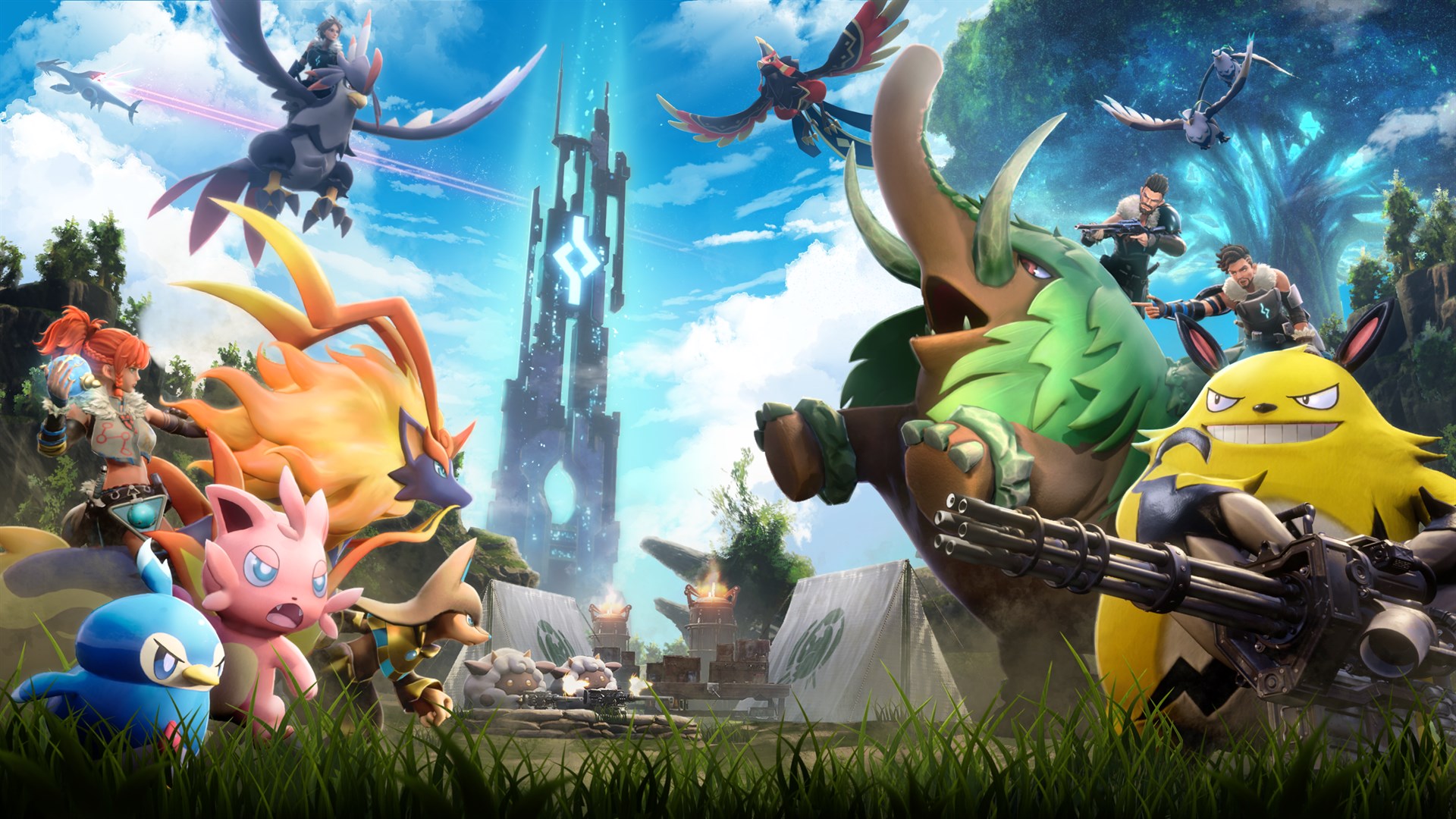Nintendo vs. Palworld: Patent Lawsuit Redefining a Genre
Last Updated: October 23, 2025

The "Pokémon with guns" phenomenon that took the gaming world by storm in early 2024 has officially escalated from online debate to a high-stakes legal battle. In a move that surprised few but concerned many, Nintendo and The Pokémon Company filed a significant lawsuit against Pocketpair, the developer of the breakout hit *Palworld*, in September 2024, alleging direct patent infringement.
This legal showdown, initiated in Japan, is a landmark case that could reshape the future of the monster-taming genre and set a powerful precedent for intellectual property protection in the games industry.
From Viral Hit to Legal Target
*Palworld* launched in January 2024 and became an overnight sensation, selling millions of copies and attracting a massive player base with its unique blend of monster-collecting, survival crafting, and third-person shooting. However, its immediate success was shadowed by persistent comparisons to Nintendo's flagship Pokémon franchise, with critics and fans alike pointing out strong similarities in creature design and core gameplay mechanics.
While initial speculation focused on potential copyright claims over character designs, Nintendo's eventual legal challenge took a different, more complex route: patent infringement. This strategy targets the very systems and mechanics that power *Palworld*, suggesting Nintendo believes Pocketpair unlawfully replicated patented gameplay elements core to the Pokémon experience.
The Patents at the Heart of the Conflict
The specific patents cited in the Japanese lawsuit remain central to the legal proceedings. However, the action is part of a broader, global strategy by Nintendo to fortify its intellectual property. Concurrently with the Japanese lawsuit, Nintendo has been actively filing for related patents in the United States. This two-front approach indicates a long-term plan to protect its monster-battling mechanics on a global scale.
Legal experts believe the patents in question likely cover fundamental gameplay loops integral to the Pokémon series, such as the processes for capturing, training, battling, and evolving creatures within a virtual world. By targeting these mechanics rather than just visual similarities, Nintendo is making a bold claim to ownership of foundational concepts within the genre it popularized.
An Uphill Battle: The Challenge of Enforcing Gameplay Patents
Winning a patent infringement case over game mechanics is notoriously difficult. Pocketpair's defense will likely argue that the concepts Nintendo claims are its own constitute "prior art"—ideas and mechanics that have been widely used and are considered standard within the genre, and therefore cannot be exclusively patented. The monster-taming genre is filled with games that involve capturing and battling creatures, and a court will have to decide if Pokémon's specific implementation is novel enough to warrant patent protection.
The outcome may also hinge on the jurisdiction. Japanese patent law has its own nuances, and some analysts believe Nintendo may have a stronger case there than it would in the United States, where courts have often been skeptical of broad software and gameplay patents. The concurrent US patent filings are a strategic hedge, ensuring Nintendo is prepared to defend its IP in the world's largest gaming market, regardless of the outcome in Japan.
The Chilling Effect on Game Development
Regardless of the verdict, the lawsuit has already sent a shockwave through the development community. For decades, developers have drawn inspiration from successful games, building upon established mechanics to create new experiences. This lawsuit challenges that paradigm. Smaller studios and indie developers, in particular, may now be hesitant to create games in the monster-taming genre, fearing the immense legal and financial risk of being targeted by a titan like Nintendo.
This "chilling effect" could potentially stifle innovation, forcing developers to steer clear of any mechanics that bear even a passing resemblance to those in Pokémon. The case against *Palworld* serves as a clear and potent warning shot to anyone looking to build on the monster-battling formula.
Conclusion: A Defining Moment for a Billion-Dollar Genre
The legal battle between Nintendo and Pocketpair is far more than a dispute over a single game. It is a pivotal confrontation that will test the limits of intellectual property law in the interactive entertainment space. Nintendo is leveraging its formidable legal history to protect one of its most valuable franchises, asserting ownership over not just its characters, but the very way they are played with.
The outcome of this case will set a critical precedent, influencing how games are designed, developed, and defended for years to come. Whether it is seen as a necessary defense of creative ownership or an overreach that stifles competition, the entire industry is watching. The future of the monster-taming genre may very well be decided not in a developer's studio, but in a court of law.